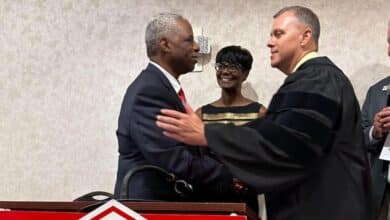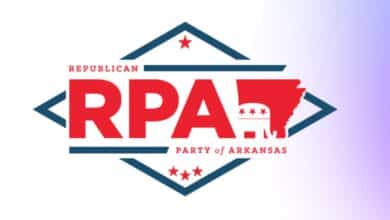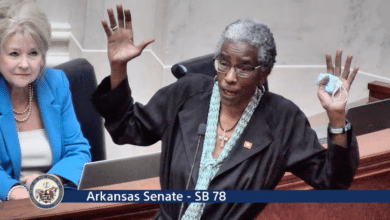LEARNS Lawsuit and Impact on Future Legislative Sessions
By David Ferguson
The Arkansas Supreme Court lifted the injunction against implementation of the education reform law known as the LEARNS Act. But the lawsuit is not over. The plaintiffs claim the Act’s emergency clause was adopted using an invalid procedure.
I want to discuss what a win by the plaintiff’s would mean for future legislative sessions and why I think a win would produce a senseless and unneeded procedure.
If the legislature’s procedure for passing emergency clauses is ultimately invalidated, future legislative sessions would have to use a slower, more cumbersome procedure when voting on hundreds of emergency clauses. It would slow down sessions, making the legislature stay longer, cost taxpayers more money, and would require a procedure that would not produce a different outcome on whether any emergency clause passes or fails.
LAWSUIT IN A NUTSHELL
The plaintiffs claim the emergency clause which allowed the LEARNS Act to become effective immediately was not properly passed and therefore the law is not effective yet.
The Arkansas Constitution sets the standard for what is required to pass an emergency clause. It must be passed by a two-thirds majority of each house, and it says each house “shall vote upon separate roll call in favor of the measure going into immediate operation.” [i]
For as long as anyone can remember, the legislature has interpreted this requirement as allowing the presiding officer to announce that the vote will be on both the passage of the bill and on the emergency clause, the legislature then votes on both, and finally the vote is recorded on the journal as two separate votes. Basically, the legislature is bundling two issues into one vote. Bundling issues into one vote is not uncommon. For example, the legislature bundles together several noncontroversial appropriation bills with the vote being for all the bills and then it is recorded separately for each bill. (These appropriation bills are truly noncontroversial since any one legislator can object to a bill being included and it will be pulled from the bundle.)
The plaintiffs contend the legislature’s procedure of taking one vote for both the passage of the bill and the emergency clause does not meet the Constitution’s requirement. They contend the language means a house must vote on the passage of the bill and, only if the bill passes, then vote on the emergency clause.
WHAT DOES A ROLL CALL VOTE MEAN?
The plaintiffs want a very restrictive interpretation of the words “separate roll call” but have focused only on a restrictive interpretation of the word “separate.” If you are going to be so restrictive, wouldn’t the next complaint be over the meaning of “roll call” vote? Traditionally, a roll call vote is a vote taken by calling each legislator’s name and the legislator then responds with his or her vote.
Almost no votes are taken that way anymore on the floor. Most votes on the floor are cast using an electronic voting system. When the language in question was adopted by the people in 1920, it did not envision the development of electronic voting systems. Since the plaintiffs are pushing a very restrictive interpretation of the Constitution over the word “separate,” will the next complaint be that the votes were taken by electronic voting instead of a legislator’s name being called and then the legislator vocally casting his or her vote?
It is easy to see such a strict interpretation would be a waste of time, but so is the procedure being advocated by the plaintiffs.
PLAINTIFF’S PROCEDURE WOULD NOT CHANGE THE OUTCOME
As a practical matter, when the legislature votes to pass a bill and the bill receives enough votes to meet the two-thirds threshold, the emergency clause is going to pass no matter what procedure is used.
Most bills need a majority vote to pass, and a few require a two-thirds vote. If two-thirds of the legislators vote for one of these bills, then the same legislators will vote for the emergency clause because they know it is a critical part of the legislation. Even if another vote were to be required, they would still approve the emergency clause by at least the same margin.
A three-fourths majority is needed to pass an appropriation bill. All of the hundreds of appropriation bills have an emergency clause. An appropriation bill passed by a three-fourths majority is not going to fail to get the two-thirds vote needed to pass the emergency clause. Every legislator knows that without the emergency clause, the appropriation bill will not become effective in time for the beginning of the new fiscal year on July 1 and state agencies will not have authority to spend money for a month or more.
Occasionally, a bill will pass with more than a majority vote but with less than the two-thirds vote needed to pass its emergency clause. When that happens, the presiding officer announces the bill passed but the emergency clause failed. Frequently, a motion will be made to expunge the vote by which the emergency clause failed and to vote on it again. On the second vote, the emergency clause will get just as many votes and normally will receive even more votes. Sometimes, it is enough to reach the two-thirds majority and pass the emergency clause. Why is this? It happens because legislators realize the bill has passed anyway and needs the emergency clause to work as intended. Often, it will be legislators who were on the fence and who did not vote on the bill or who voted “present” who will be the first to press their “yes” button in support of passing the emergency clause.
The legislature has long interpreted its procedure as meeting the Constitution’s requirement, which also means the legislature has long recognized that bundling the issues together into one vote, produces the same result and is the equivalent of two distinct votes. Now we wait to see if the court imposes a different interpretation.
Updated 06/16/2023
David Ferguson is a former Director of Arkansas’ Bureau of Legislative Research, having a thirty-two-year career as an attorney for the Arkansas legislature. After retirement from state service, his primary focus has been beef cattle farming. He is also a former officer of Conduit for Action.
[i] Arkansas Constitution, Article 5, Section 1






